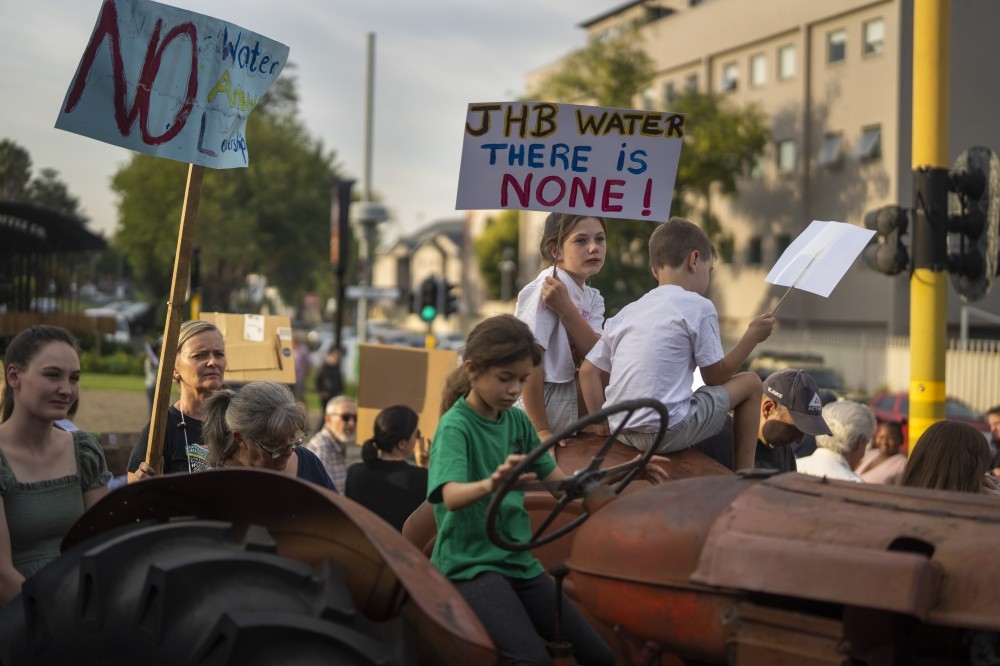21/03/2024
21/03/2024

JOHANNESBURG, March 21, (AP): For two weeks, Tsholofelo Moloi has been among thousands of South Africans lining up for water as the country's largest city, Johannesburg, confronts an unprecedented collapse of its water system affecting millions of people.
Residents rich and poor have never seen a shortage of this severity. While hot weather has shrunk reservoirs, crumbling infrastructure after decades of neglect is also largely to blame. The public's frustration is a danger sign for the ruling African National Congress, whose comfortable hold on power since the end of apartheid in the 1990s faces its most serious challenge in an election this year.
A country already famous for its hourslong electricity shortages is now adopting a term called "watershedding” - the practice of going without water, from the term loadshedding, or the practice of going without power.
Moloi, a resident of Soweto on the outskirts of Johannesburg, isn't sure she or her neighbors can take much more.
They and others across South Africa's economic hub of about 6 million people line up day after day for the arrival of municipal tanker trucks delivering water. Before the trucks finally arrived the day before, a desperate Moloi had to request water from a nearby restaurant.
There was no other alternative. A five-liter (1.3-gallon) bottle of water sells for 25 rand ($1.30), an expensive exercise for most people in a country where over 32% of the population is unemployed.
"We are really struggling," Moloi said. "We need to cook, and children must also attend school. We need water to wash their clothes. It’s very stressful.”
Residents of Johannesburg and surrounding areas are long used to seeing water shortages - just not across the whole region at once.
Over the weekend, water management authorities with Gauteng province, which includes Johannesburg and the capital, Pretoria, told officials from both cities that the failure to reduce water consumption could result in a total collapse of the water system. That means reservoirs would drop below 10% capacity and would need to be shut down for replenishment.


